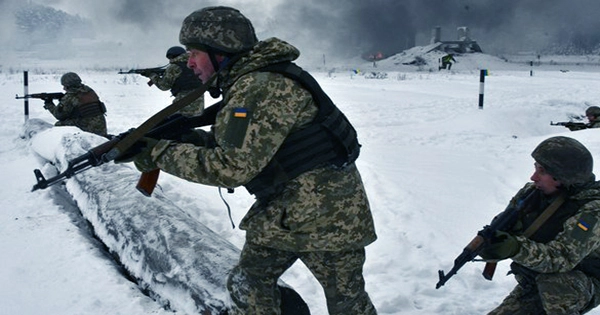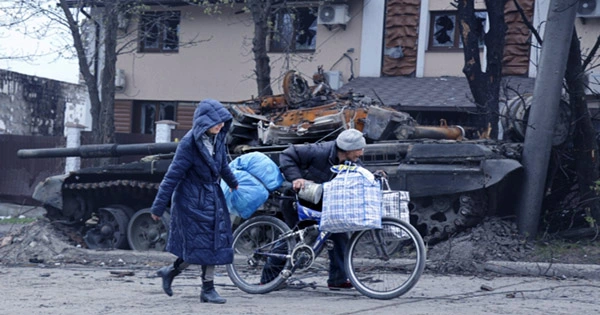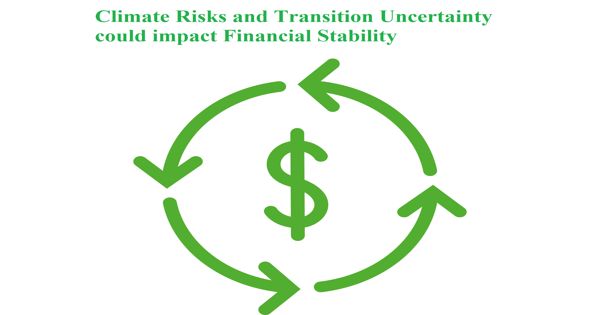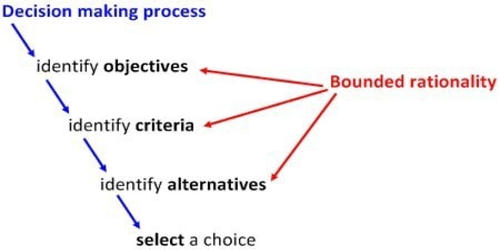A note from Amazon appeared in the inbox of Vladimir Smirnov, a programmer from St. Petersburg, on the evening of February 23, only hours before Vladimir Putin’s troops entered into Ukrainian territory. It was a work permit for an employment as a software engineer in Ireland. Smirnov had started interviewing for the job at Amazon in January, when US intelligence raised worries about Putin’s preparations for a conflict in Ukraine. Smirnov realized that war was on the way two days earlier, during Putin’s televised address to the nation, in which he recognized the independence of the Donetsk and Luhansk People’s Republics, Ukrainian territories that have been under Russian control since 2014.
“He handed the nation his judgement and, inadvertently, declared war,” Smirnov added. “That vicious speech made my entire family tremble.” Knowing that war has been declared is one thing. It’s one thing to wake up on February 24 to learn that bombings have occurred. Smirnov had no doubt that he needed to depart Russia the next morning. After getting ready, he proceeded to take a COVID-19 test so that he could fly to Georgia as quickly as possible, and then to Ireland.

The 22-year-old CEO of the firm WeLoveNoCode, Nik Shevchenko, has also opted to leave Russia. Shevchenko got an airline ticket to Portugal, where he is presently, fearing that martial law will be imposed in Russia, closing the borders. “First they seal the borders, then they compel you to murder,” Shevchenko explained. Unfortunately, I’m physically capable of serving in the military, but I don’t want to harm innocent people.” When Putin ordered the installation of “all nuclear deterrence forces in a special regime,” a veiled threat of nuclear posturing not seen since the Cold War, Natalia Chebotar, a former senior management at Yandex and one of the foremost Russian professionals in edtech, fled Russia with her family.
When IT firms and services began fleeing Russia, Yuri Malyugin, a former lead product designer at SberAutoTech, bought a flight to Georgia, where Russians may stay for up to a year without a visa. A user experience designer from Moscow who chooses to remain nameless described how his work PC became “a worthless piece of plastic” just a few days into the battle. After Russia was unplugged from SWIFT in early March, the software stopped operating, and his firm was unable to receive payments from international partners or pay its employees in Europe.
“The last straw was when we attempted to transfer the pay to our Ukrainian employee,” the designer explained. “He was at home in Mariupol at the time. A curfew had been established since the city had previously been bombarded. ‘I have no money left,’ he said in his farewell communication to us. I notice mobile crematoria approaching my house as I glance out the window.’ We didn’t hear from him again after that.” 70,000 IT workers deserted Russia in February and March, according to the Russian Association for Electronic Communications, or RAEK.
Experts at RAEK expect that Russia will lose another 100,000 specialists in April, owing to the necessity to wrap up loose ends in Moscow, as well as high ticket costs. (After the conflict began, more than 30 nations shut down their airspace to Russian planes, and Boeing and Airbus ceased servicing Russian fleets and began recalling leased planes.) Google is already withdrawing its personnel out of Russia behind the scenes. Arrival, a British firm, moved its Russian staff to other nations. According to Kommersant, the Miro platform relocated its employees from Perm, Russia, to Amsterdam.
“After February 24, charter aircraft began transporting IT experts out of Russia,” Anastasia Mirolyubova, co-founder of Immigram, an immigration portal for IT professionals and entrepreneurs, stated. However, the second wave of emigration, which was expected to begin in April, may not materialize. Departing IT IT workers have drawn the attention of Russia’s FSB — a government group linked to contract assassinations and poisonings of Russians who oppose Putin’s administration — from the outset of the war.
















